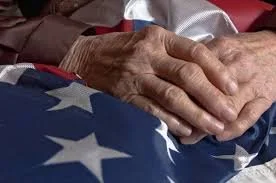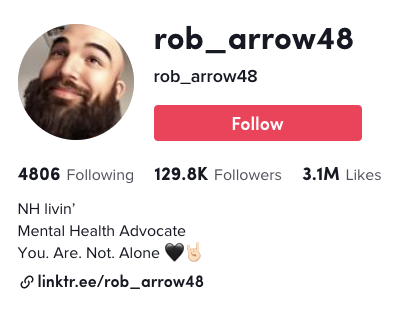According to the Trevor Project, 45% of LGBTQ+ youth have seriously considered suicide in the past year -- and 1 in 5 trans youth attempted suicide in the past year (Trevor Project, 2022). Who are LGBTQ+ youth, why is their risk of suicide so high, and what can we do about it?
Read MoreThe pandemic impact is amplified and has created a Partnership for Public Health is using the “Together With Veterans” model to increase mental health support for Veterans during a challenging time.
Read MoreWhile NH’s suicide mortality rate of 16.4/100k population is above the national average of 14 deaths/100,000 people, the Granite State has a special distinction in suicide prevention.
Read MoreIndividuals experiencing domestic violence and intimate partner violence (IPV) are at increased risk for death by suicide; their experience can result in disorders like post-traumatic stress disorder (PTSD), depression and schizophrenia.
Read MoreA weightlifting TikTok influencer and a football team are on the list of those fighting to lift the stigma against seeking help for mental health – a stigma that impacts many men.
Read MoreAfter his discharge in 2014, Marine Combat Veteran Cole Lyle was in a low place and contemplated taking his life. His turning point came when a fellow Marine’s kindness saved him – ever since, he has been on a mission to help other Veterans.
Read MorePaul Lore and three fellow Veterans are so motivated by the problem of Veteran suicide that they rowed thousands of miles across the Atlantic Ocean to raise money to support a therapy dog project.
Read MoreScreening all patients for anxiety and depression is being recommended by an influential national task force which stopped short of supporting universal screening for suicide risk.
Read MoreThe creation of statewide Rapid Response Teams has improved access to mental health services and provides more individualized approaches that are more empowering for people in crisis.
Read MoreThe NH Lawyers Assistance Program collaborated with the NH Coalition for Suicide Prevention to develop a series of articles targeted to lawyers, a group at high risk for suicide and depression, using fictional scenarios of how colleagues could help a troubled small-town lawyer.
Read MoreSuicide survivors, or people who have lost a significant person in their lives to suicide, often face distinctive challenges in bereavement, including stigma, a lack of social support, and ruminations over why the person ended their life.
Read MoreIn New Hampshire, suicide is the second leading cause of death for children, adolescents, and young adults age 15-to-24-years-old. This age group is considered high risk because they are facing many uncertainties as they transition from high school to college to the “real world”.
Read MoreThe Disability Diagnosis Dialogues (DDD) Task Force at ABLE NH is working to change how NH healthcare providers deliver a diagnosis of disability, and more broadly, how to enhance their cultural competence when delivering care to the disability community.
Read MoreThe Patriot Resilient Leader Institute (PRLI), a 501-c3 founded in 2014 by a small group of Veterans and local citizens, offers Camp Resilience retreats for Military Service Members, Military Veterans, First Responders and their families.
Read MoreFor some seniors, the so-called “golden years” are not so golden. As physical abilities deteriorate and mental abilities slow, the elderly population may also be experiencing stress as sources of emotional support disappear and their own abilities erode. Pain is a difficult barrier to overcome.
Read MoreContrary to the impression left by the iconic Christmas movie, “It’s a Wonderful Life,” suicide is not more common during the holidays. Organizations interested in mental wellness and suicide prevention can acknowledge the importance of managing heightened stress and anxiety related to these busy times without suggesting that suicides are more common.
Read MoreIn the month of November, and on Veterans Day in particular, we focus on those who have served, or are currently serving our country, and we thank them for their service.
Read MoreI wish I could say I had a lot of memories of my mother, but I don’t. A few mismatches here and there — not much of it making sense — and nothing else. I have photos, a few stories, and little more.
Read More
Sonja and Mitch Wasden seemed to have it all: a long, loving marriage, three healthy and talented children, a supportive faith community, and financial security from Mitch’s work as a hospital CEO.
After a brain injury, Jim Scott battled through rehabilitation, substance use disorder, and thoughts of suicide but chose to reinvent himself as an author.
Read More




















